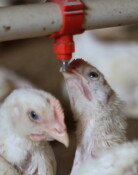[Focus] Outlook for 3rd Red Cross talks
[Focus] Outlook for 3rd Red Cross talks
Posted January. 28, 2001 19:42,
The third round of Red Cross talks takes place between Monday and Wednesday at a Mt. Kumgang resort, where participants will discuss institutionalizing reunions of separated families and set the schedule for the next round of reunions slated for Feb. 26-28.
The meeting has a special meaning in that it will be the first encounter between the two Koreas in the New Year. It is all the more important because it comes at a time when North Korea's supreme leader Kim Jong-Il has aired his intention to open up the North based on the Chinese model. He even talked about welcoming an era of "new thinking."
The attitude and statements of North Korean delegates and their assistants at the talks are thought to hint at whether and in what way Kim's new thinking has influenced bureaucrats and the general public. At the 2001 convention "for our fellow countrymen to open the door of reunification" on Jan. 10, Pyongyang declared: "In keeping with the spirit of the inter-Korean summit statement, best efforts will be made to resolve such humanitarian questions as accounting for and locating separated family members, starting mail exchanges and establishing a permanent meeting place." Seoul naturally has high hopes that North Korea will demonstrate its determination to implement these programs.
On the eve of the conference, North Korea reshuffled some of its delegates as if in response to the appointment of new leaders of the South Korean Red Cross here -- Suh Young-Hoon as president and Lee Byung-Woong as special aide to the president. Former diplomat and Red Cross executive council member Kim Kyung-Rak replaced Choi Sung-Chul as chief delegate.
Choi, who came to Seoul as deputy chief delegate during the 2nd family reunions, was hardheaded in his approach to Southern officials. An expert on separated family issues with Japan and vice general secretary of the North's Red Cross executive council, Lee Ho-Rim was named to head the North Korean delegation.
South Korea will focus on settling institutional problems related to family reunions, especially the issue of setting up a permanent meeting place and establishing operating guidelines. Lists of 100 candidates from each side will be exchanged in February for reconfirmation. To facilitate the procedure, Seoul plans to propose identification and location of hundreds of candidate families on a regular basis. Methods of mail exchanges will also be discussed.
North Korea said during the 2001 convention that it was a most urgent humanitarian question to repatriate long-term North Korean prisoners in the South. This issue may emerge as a stumbling block at the forthcoming talks. Government sources here said the additional release of North Korean prisoners would be difficult, since 63 were already sent back to the North on Sept. 3. Those prisoners were convicted and held here on espionage or subversion charges, and refused to renounce their allegiance to Communism.
Ha Tae-Won scooop@donga.com
Headline News
- Joint investigation headquarters asks Yoon to appear at the investigation office
- KDIC colonel: Cable ties and hoods to control NEC staff were prepared
- Results of real estate development diverged by accessibility to Gangnam
- New budget proposal reflecting Trump’s demand rejected
- Son Heung-min scores winning corner kick







